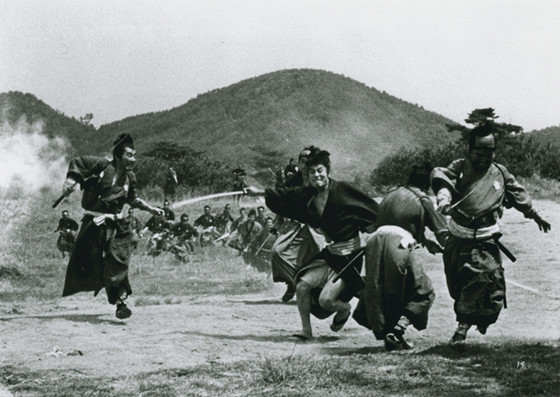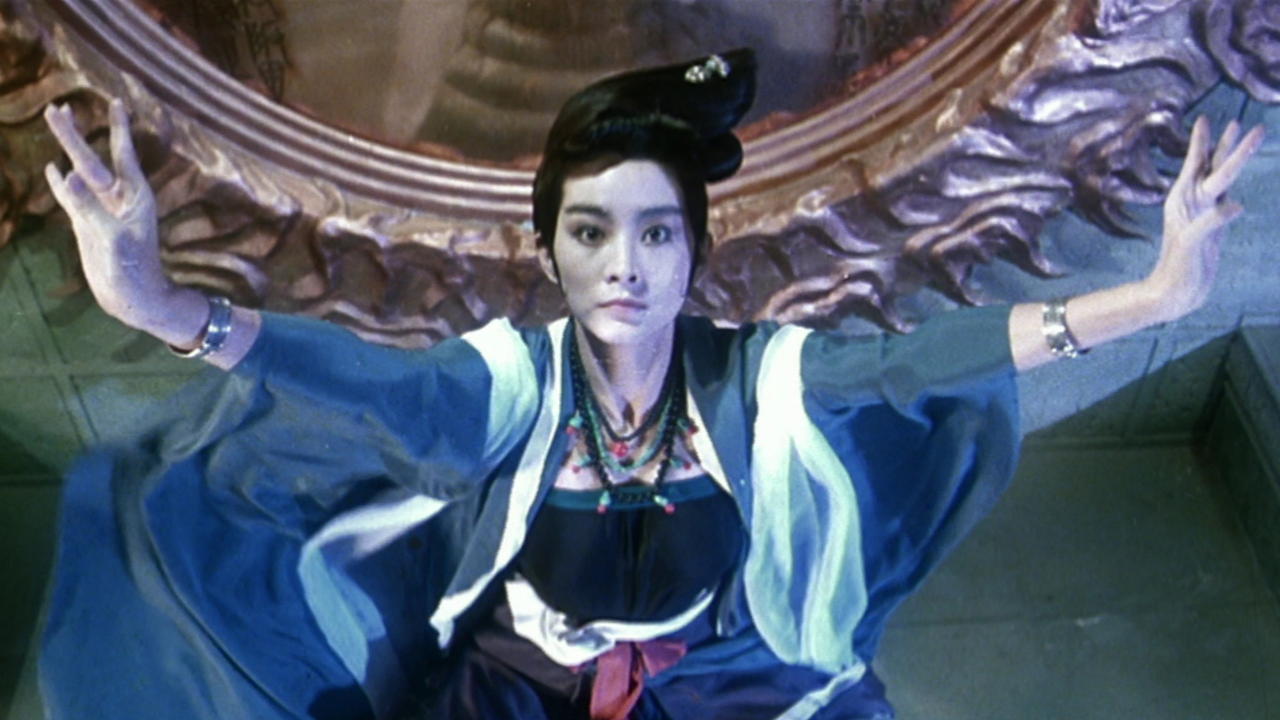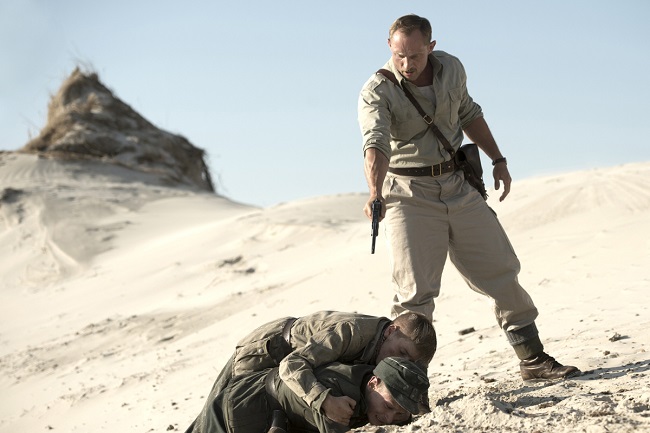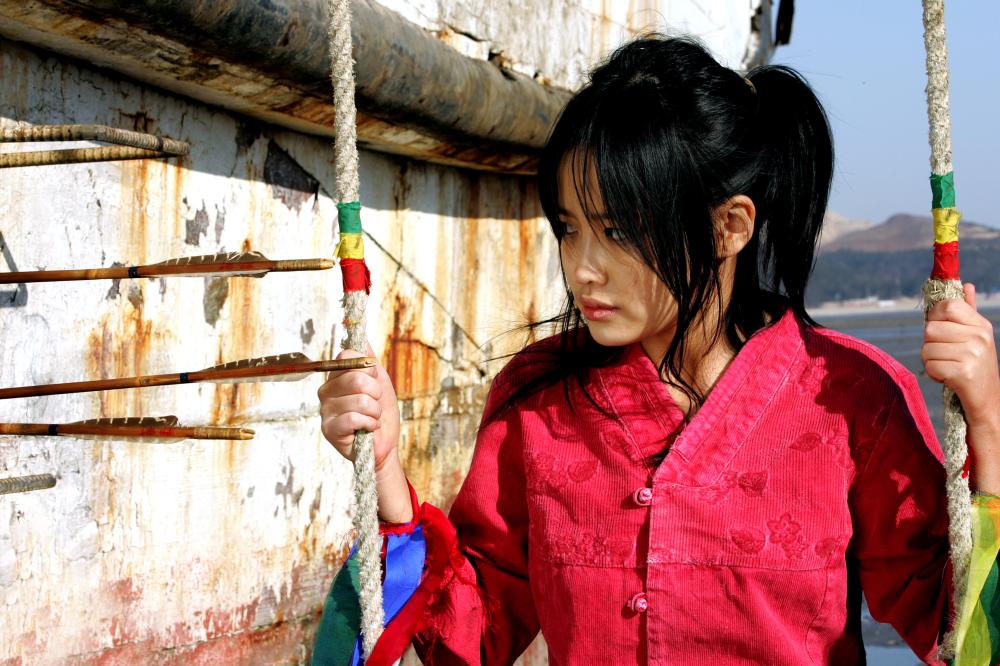6. Three Outlaw Samurai (Hideo Gosha, 1964, Japan)

When you watch the feature film debut of Japanese director Hideo Gosha, you may find the story similar to Kurosawa’s samurai movies, as it’s also about ronins who come to help peasants fight the higher class. What makes Gosha’s film remarkably unique is how he presents the authoritarian society and the traditional honor code of the samurai.
It also has three interesting protagonists that remind one of Sergio Leone’s masterpiece “The Good, The Bad and The Ugly”. They are not as layered as the samurais in “Seven Samurai”, but they are still complex enough to keep you engaged. The story has a lot of depths and the action scenes are ace. Don’t miss it if you are a fan of samurai cinema.
7. ZU: Warriors from the Magic Mountain (Tsui Hark, 1983, Hong Kong)

Tsui Hark is one of the most important figures in Hong Kong cinematic history. Having emerged from the Hong Kong New Wave, Tsui has worked on many genres including kung fu fantasy, crime, and period dramas. He has either directed, written or produced some of the best Hong Kong movies ever made, and he is still making great motion pictures today.
When we look at “ZU: Warriors from the Magic Mountain”, one of the early classics in his career, it’s more like a guilty pleasure movie as the storytelling is totally a mess in favor of visual spectacles. But the world Tsui created is so beautiful and so magical that your jaw might drop the first time you see these images. It shows incredible imagination and craft to visualize everything. The director remade it in 2001 due to computer technology advances, but the original still remains as the peak of Hong Kong fantasy cinema.
8. Escape from the ‘Liberty’ Cinema (Wojciech Marczewski, 1990, Poland)

“A real gem of world cinema,” as some fans called it, “Escape from the ‘Liberty’ Cinema” is a re-adaptation of Woody Allen’s classic “The Purple Rose of Cairo” in the context of late 1980’s Poland.
The film centers a film censor who discovered that the actors in a Polish movie refused to perform their roles. Then some film critic comes and project Allen’s “The Purple Rose of Cairo” in the cinema. Strange things happen, the two movies accidentally overlap with each other, and the main character of Cairo steps into the Polish movie.
Directed by Poland’s much-censored filmmaker, the movie brilliantly combines social satire and surreal humor; it’s a celebration of the freedom of art, and ultimately, of all humanity.
9. Land of Mine (Martin Pieter Zandvliet, 2015, Denmark)

Probably not as obscure as other movies on the list, this Danish movie was nominated for Best Foreign Language Film Oscar this year, but it still didn’t get enough recognition from movie fans as it deserves.
The story takes place during the days following the end of World War II in Europe, where a group of German POWs are forced to dig up millions of landmines under the Denmark-Germany borderline beach with their bare hands. The Danish sergeant who supervises this task hates Germans so much he doesn’t give a damn if their soldiers live or die. He treats them cruelly but as more young soldiers lose their lives detecting the mines, his attitude changes.
The first half of the movie really reminds one of Stanley Kubrick’s war masterpiece “Full Metal Jacket”; the sergeant is ruthless and cold-blooded. What’s so touching about the movie is that it’s not about the aftermath of war, but rather the humanity itself. The character arc of the sergeant is worth every film student’s study. The ending is reminiscent of Jean Renoir’s classic “The Grand Illusion”, which is joined by this one as some of the greatest anti-war movies ever made.
10. The Bow (Kim Ki-duk, 2005, South Korea)

Long rumored to be included in The Criterion Collection, South Korean auteur Kim Ki-duk’s erotic thriller is one of the director’s most underrated movies.
The story is set entirely on a 40-foot boat anchored off the coast of Korea. A 60-year-old man and a 16-year-old girl live in this boat and it is agreed that they will get married when the girl turns 17; the old man will shoot anyone with a bow and arrow who tries to get near the girl. Things start to change when a young man gets on board and falls in love with the girl.
Like many Kim Ki-duk movies, the movie has very few dialogues and many symbols. Yes, it’s has a very simple premise, but it keeps you guessing all the time. Will the girl leave the boat? What will the old man do to keep her? It also asks profound questions about love and sexuality, a true gem of modern cinema.